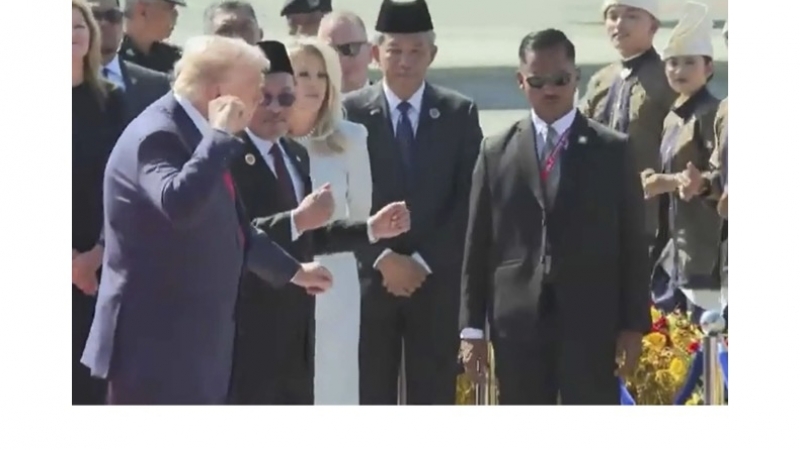



The 92-year-old former Malaysian Prime Minister Mahathir Mohammad is back in power ousting his former protégé, the scandal-ridden Najib Razak.
Are the political fortunes of Anwar Ibrahim, a former deputy Prime Minister who fell out of favour with Dr Mahathir Mohammad, about to change? Recent developments in Malaysia have boosted his party’s hopes.
What started as a media manufactured rift in Malaysia’s Islamic Party (PAS) soon became real after its top leader openly condemned a section of the leadership who has been in talks with the ruling UMNO.
In the ongoing political drama that has played out over the last decade, more so since the opposition’s impressive gains in last year’s general elections, the government imposed a three-month ban on one of the country’s most widely circulated newspaper, Harakah, the bilingual voice of the Islamic Party (PAS), which now controls two of the five states the opposition alliance captured last year.
By-elections in Malaysia are fought with the same vigor, if not more, as the general election. Why this is so remains a mystery, especially when the ruling party still has a comfortable majority in parliament despite the drubbing it got in the general elections last March.
The creases from his predecessor’s seat had hardly settled when Abdullah Ahmad Badawi announced on October 9 that he would step down as prime minister and president of the ruling United Malays National Organisation (UMNO) in March 2009.
If the trend of powerful political parties expiring after fifty years’ rule is anything to go by, then Malaysia’s ruling United Malays National Organisation(UMNO), in power since the country’s independence from Britain in 1957, had better be prepared.
Four years ago Anwar was almost a spent force in Malaysian politics. When he was released after a court’s acquittal in September 2004, amid the jubilation that he would provide the leadership needed for an opposition in disarray, there was still no guarantee that another attack against him would not resurface, despite the failed campaign of prime minister Mahathir Mohamad to taint his character.
It has become a political tradition for the performance of a government to be evaluated once it has been in power for a period of some three months or a hundred days. This is usually taken as the time required for the new administration to bed itself in; problems encountered before this time has elapsed can often be conveniently attributed to the previous regime.
That there are now two ruling coalitions in Malaysia – UMNO’s and another led by Anwar Ibrahim (pic, left) – aptly describes Malaysia’s post-election reality. For the first time, the opposition’s credibility is being put to test at the governing level.
As Crescent goes to press, intense campaigning is under way in Malaysia for the general election on March 8. The election was called by prime minister Abdullah Ahmad Badawi after almost a year of speculation that turned out to be correct: that it would be held before April this year.
As Crescent went to press, Malaysians were still awaiting announcement of the date of the country’s general elections, which had been widely expected to take place before the end of the year. They have been delayed because of a number of man-made and natural events that have shaken the confidence of the government of prime minister Abdullah Badawi.
Nine years after he was dismissed, arrested, beaten and brought to the trial that displayed the utter corruption of Malaysia’s judiciary, former deputy prime minister Anwar Ibrahim, now a leader of the opposition, seems to have got something on a silver plate on September 19.
Few countries pay as much attention to their deputy prime ministers as Malaysians do. The number two spot in the government is often fought for with a fervour stronger than for the PM’s post. When not being contested, the person occupying it had better get every part of his act clean, at least in public. The slightest involvement in any controversy will be the road to resignation, or, in the case of Anwar Ibrahim, unceremonious dismissal and arrest.
Barely a month after he announced his intention of returning to the political stage, Anwar Ibrahim, Malaysia’s former deputy prime minister, is back in limelight. Since being released from jail in late 2004, he had been travelling around the world delivering speeches to academic institutions and thinktanks. Now he has promised to give the Malaysian opposition a shot in the arm.
The rise and fall of the Malaysian Islamic Party (PAS) seem to be tied to its arch-rival United Malay National Organisation (UMNO). Now that UMNO’s worst crisis is over with the end of the Anwar Ibrahim saga, all indications are that PAS is declining, with even party leaders becoming defensive when trying to answer accusations that the party has lost its direction.
Since his release last year after spending six-years in a Malaysian prison, Anwar Ibrahim has become a darling of the West for his promotion of an understanding of Islam that is regarded as ‘moderate’ and West-friendly. ABDAR RAHMAN KOYA in Kuala Lumpur reports.
Since his return on October 31 after undergoing spinal surgery in Germany, former Malaysian deputy prime minister Anwar Ibrahim has been wooing large crowds wherever he goes...

